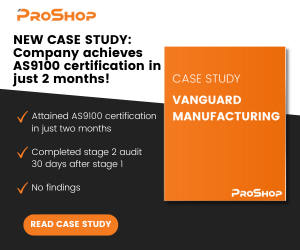Turn Your Excess Inventory Into A Tax Break
Your company's excess, slow-selling inventory can become a tax-advantage deduction when you donate it to a qualified charity. It's called gifts-in-kind, and it favors companies that contribute new, unused products.
Share


Takumi USA
Featured Content
View More



Autodesk, Inc.
Featured Content
View More

Hwacheon Machinery America, Inc.
Featured Content
View MoreYour company's excess, slow-selling inventory can become a tax-advantage deduction when you donate it to a qualified charity. It's called gifts-in-kind, and it favors companies that contribute new, unused products.
Regular (C) corporations may deduct the cost of the inventory donated, plus half the difference between cost and fair market value (your selling price). S corporations, partnerships, and sole partnerships earn a straight cost deduction.
The best way for most businesses to take advantage of an inventory charitable deduction is to use the free service of a "charity middleman," such as the nonprofit National Association for the Exchange of Industrial Resources (NAEIR). This organization accepts product donations, provides you with proper tax documentation within 14 days after receiving your inventory, and then redistributes the goods among 6,000 qualified schools and charities across the United States.
The donation process is simple, NAEIR asks you (the donor) to submit a written proposal that includes a short description of the inventory, quantities, and a wholesale or cost value.
NAEIR's Donation Review Committee then approves the proposal and sends you a confirmation letter, labels, and shipping instructions. While donors are responsible for shipping costs from their facilities to NAEIR's warehouses in Illinois or California, that cost increases the deductible donation.
For NAEIR's free, no obligation donation guide, call (800) 562-0955.
Retire...But Don't Sell
This war story is true. Joe, age 62, has three kids—a son and a daughter in the business and a son who is not interested in the business. Joe owns all the stock of Success Co., a C corporation (a tax-paying corporation). Success Co. owns appreciated assets—land, buildings and goodwill—that are worth about five times their book value on the company's books. Goodwill is not on the books or, put another way, is on the books for zero. To keep it simple, let's say Joe's tax basis for the Success Co. stock is zero.
Now the economic facts and the tax problem. The business, including the appreciated assets, is worth about $2.5 million. Great! The tax hit to the corporation if it sold its assets would be about $600,000. What happens when Joe takes the $1.9 million balance out of the corporation?...Another tax hit, this time about $380,000. True enough, the $1,520,000 left is a nice bundle of cash, but it's not nearly enough to maintain the retirement lifestyle Joe and his wife have dreamt about. For Joe to pay almost half of the business' value in taxes to accomplish his retirement goal is insanity. What to do?
Don't sell the business. Keep it. Without covering every detail, here's the basic plan for Joe. Success Co. elected S corporation status. Joe retired. The kids run the business anyway. Joe consults about six to ten times a month, except in the winter when he goes south. Success Co. usually makes $300,000 to $450,000 per year before any salary or fringe benefits to Joe. That leaves plenty of room for Joe to take $100,000 after taxes (more or less) of S corporation dividends (plus a small salary and his usual fringe benefits) to fund his annual retirement needs. We also put two additional plans into effect: first, a transfer of stock plan to the children including a buy-sell agreement, and second, an estate plan for Joe and his wife, funded by insurance, which will eliminate all gift and estate taxes.
Read Next
5 Rules of Thumb for Buying CNC Machine Tools
Use these tips to carefully plan your machine tool purchases and to avoid regretting your decision later.
Read MoreBuilding Out a Foundation for Student Machinists
Autodesk and Haas have teamed up to produce an introductory course for students that covers the basics of CAD, CAM and CNC while providing them with a portfolio part.
Read MoreRegistration Now Open for the Precision Machining Technology Show (PMTS) 2025
The precision machining industry’s premier event returns to Cleveland, OH, April 1-3.
Read More





































.jpg;maxWidth=300;quality=90)



